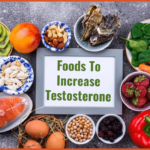Eating a healthy plant-based diet involves focusing on nutrient-rich plant foods while minimizing or eliminating animal products. Here are some tips to help you eat healthy on a plant-based diet:
- Include a variety of fruits and vegetables: Make sure to incorporate a wide range of colorful fruits and vegetables into your meals. They provide essential vitamins, minerals, antioxidants, and fiber.
- Get enough protein: While animal products are a common source of protein, plant-based protein sources like legumes (beans, lentils, chickpeas), nuts, seeds, tofu, tempeh, and whole grains can meet your protein needs. Include a variety of these protein sources in your meals.
- Choose whole grains: Opt for whole grains like quinoa, brown rice, whole wheat bread and pasta, oats, and barley. These offer more fiber, vitamins, minerals, and antioxidants compared to refined grains.
- Include sources of healthy fats: Incorporate sources of healthy fats like avocados, nuts, seeds, olive oil, and coconut oil. These fats are important for brain health, hormone production, and nutrient absorption.
- Pay attention to nutrient needs: Ensure you are getting adequate amounts of nutrients like iron, calcium, vitamin D, vitamin B12, and omega-3 fatty acids, often found in animal-based products. Consider incorporating fortified foods or supplements as necessary.
- Minimize processed foods and added sugars: Limit consumption of processed and packaged foods, as they often contain added sugars, unhealthy fats, and artificial ingredients. Opt for whole, minimally processed plant foods whenever possible.
- Stay hydrated: Drink plenty of water throughout the day to stay properly hydrated. Limit sugary beverages and choose water, herbal teas, or infused water for hydration.
- Meal planning and preparation: Plan your meals and snacks in advance to ensure you have balanced and nutritious options available. Cooking at home allows you to control the ingredients and make healthier choices.
- Experiment with new recipes and flavors: Explore different plant-based recipes and experiment with spices, herbs, and seasonings to add variety and flavor to your meals. This can make your plant-based diet more enjoyable and sustainable.
- Consult a registered dietitian: If you’re new to a plant-based diet or have specific dietary requirements, it’s advisable to consult with a registered dietitian who can provide personalized advice and guidance to support your health and nutrition goals.
Remember, a plant-based diet is flexible and can be adapted to suit individual preferences and needs. Find what works best for you and focus on nourishing your body with nutrient-rich plant foods.











